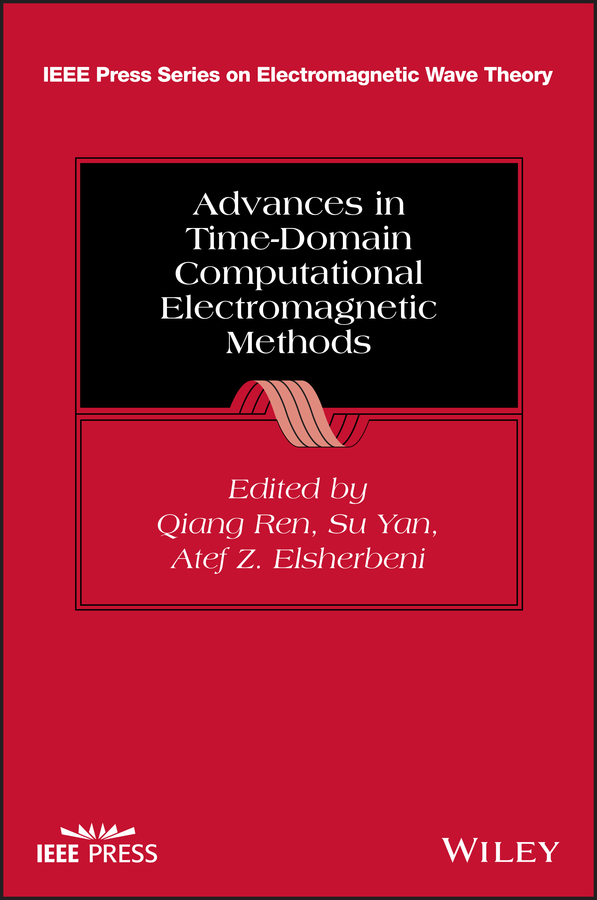<p><b>Discover state-of-the-art time domain electromagnetic modeling and simulation algorithms </b></p> <p><i>Advances in Time-Domain Computational Electromagnetic Methods</i> delivers a thorough exploration of recent developments in time domain computational methods for solving complex electromagnetic problems. The book discuses the main time domain computational electromagnetics techniques, including finite-difference time domain (FDTD), finite-element time domain (FETD), discontinuous Galerkin time domain (DGTD), time domain integral equation (TDIE), and other methods in electromagnetic, multiphysics modeling and simulation, and antenna designs. </p> <p>The book bridges the gap between academic research and real engineering applications by comprehensively surveying the full picture of current state-of-the-art time domain electromagnetic simulation techniques. Among other topics, it offers readers discussions of automatic load balancing schemes for DG DG-FETD/SETD methods and convolution quadrature time domain integral equation methods for electromagnetic scattering. </p> <p><i>Advances in Time-Domain Computational Electromagnetic Methods</i> also includes: </p> <ul> <li>Introductions to cylindrical, spherical, and symplectic FDTD, as well as FDTD for metasurfaces with GSTC and FDTD for nonlinear metasurfaces </li> <li>Explorations of FETD for dispersive and nonlinear media and SETD-DDM for periodic/quasi-periodic arrays </li> <li>Discussions of TDIE, including explicit marching-on-in-time solvers for second-kind time domain integral equations, TD-SIE DDM, and convolution quadrature time domain integral equation methods for electromagnetic scattering </li> <li>Treatments of deep learning, including time domain electromagnetic forward and inverse modeling using a differentiable programming platform </li> </ul> <p>Ideal for undergraduate and graduate students studying the design and development of various kinds of communication systems, as well as professionals working in these fields, <i>Advances in Time-Domain Computational Electromagnetic Methods </i>is also an invaluable resource for those taking advanced graduate courses in computational electromagnetic methods and simulation techniques. </p> <p> </p>
Sale!
Advances in Time-Domain Computational Electromagnetic Methods
₹8,722.00
This book is currently not in stock. You are pre-ordering this book.




